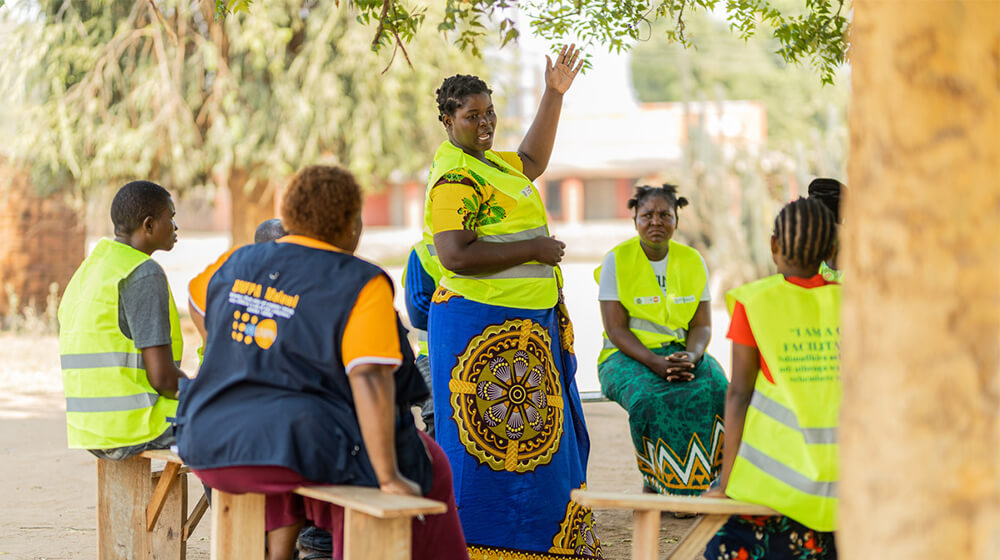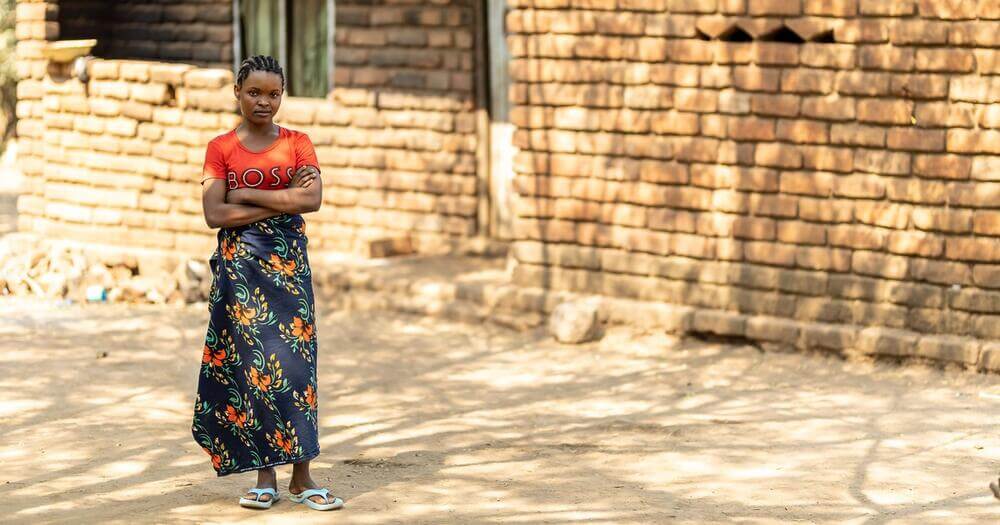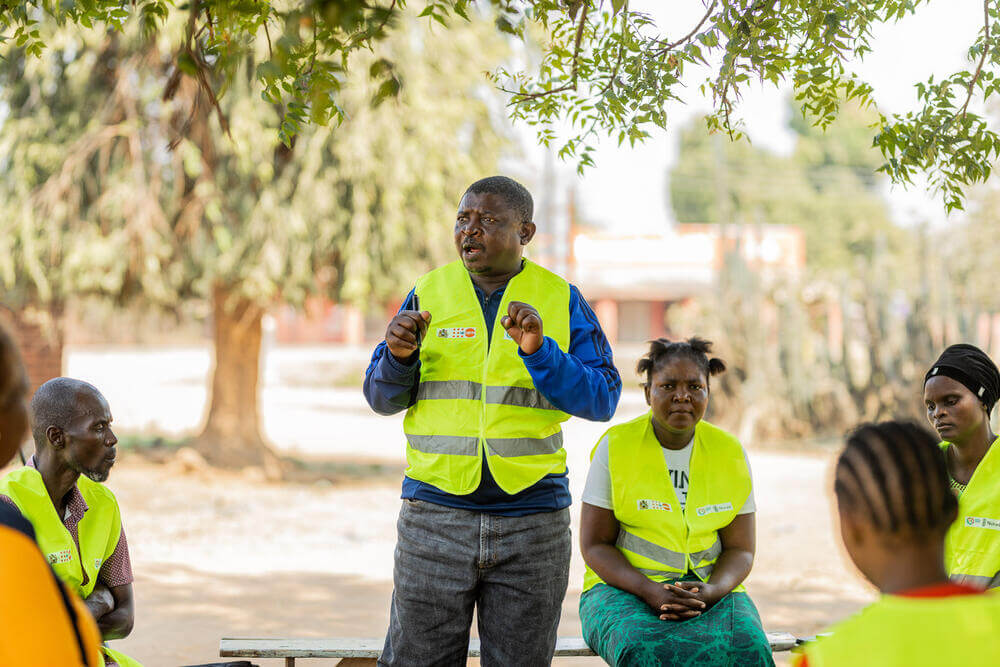Girls in Malawi Are Being Protected by Their Community

CHIKWAWA, Malawi – In Malawi, Fanny, a 16 year old girl, didn’t know how to react when she learned her initiation ceremony was happening. “No one really tells you the truth about what happens there,” she told UNFPA.
“Many things are kept secret. I tried to reach out to my friends who had been and they just laughed. They told me I would have to find out for myself.”
Unfortunately, that choice wasn’t hers to make. Fanny went to a secluded camp near their village with her mother and met with four elderly women. She would not leave the camp for the next three weeks.
“The rules were tough,” she said. “We weren’t supposed to go out or see anyone during our stay. Even those who brought us food were not allowed to talk to us.”
She found some aspects of the ceremony helpful, such as lessons in menstrual hygiene and cooking. But others, like the ‘sex education’ component, whereby one of the elder ladies taught the girls how to have sex, almost ruined her future.
“After we graduated, we were told that we had come of age. To many of us, this meant that we were ready for marriage. I decided to try out what we had learned and found myself in a relationship,” she said.
Fanny’s boyfriend was a few years older, and as her new-found love grew, she began to lose interest in school. “I agreed with him to get married,” she explained. “But when my mother heard about it, she sought help from the community police. Since I was underage, I decided to leave the area to stay with my grandmother so that they wouldn’t arrest my boyfriend.”
Word had already spread about her relationship, however, and soon reached the ears of the local chief, who decided to intervene.

Local leaders rise to the challenge
“Our district is known for harmful traditional practices that have derailed the future of many girls,” said Fraiton Pintu, the Group Village Head. “We need to change this. If we fail, we will leave behind a legacy that will be frowned upon by generations to come.”
In Malawi, more than 40% of girls are child brides. In 2017, constitutional reform raised the legal age of marriage to 18, but girls’ sexual, reproductive, and human rights are still being violated.
Mr. Pintu is a passionate advocate for girls’ education. He serves as the chair of the UNFPA-supported Mlirima Development Network. The network is a community group that battles violence against woman and girls and child marriage. It’s through this organization that he arranged a meeting with Ms. Galeta.
“She listened to us and agreed to go back to school,” Mr. Pintu said. “We also made sure that the boy keeps away from her by warning him that we will report [him] to the police if he continued seeing her.”
Under the Safeguard Young People program and funded by Switzerland, UNFPA trains network leaders in gender equality and rights. The program raises awareness of harmful practices and empowers survivors to claim their rights.
So far, the network has helped more than 30 girls avoid early marriages and supported them in returning to education. One of those girls was Fanny, who sat the exams for her primary school certificate and passed.
“I’m glad that I listened to their advice,” Fanny said. “Now I am the pride of my family as I am the only girl to go to secondary school.”

Bridging the gaps in bodily autonomy
Finally, Mr. Pintu and his network have also created bylaws prohibiting initiation ceremonies from taking place during the school term for girls in Malawi.
“Times have changed, yet we still had old women teaching young girls obsolete traditions,” he explained. “We chose young women who were progressive to take charge of the initiation ceremonies. We can’t do away with them completely as they are part of our culture, but we can reform them from within.”
UNFPA supports women and girls around the world to claim their right to bodily autonomy. Campaigns like Mr. Pintu’s are a critical step towards gender equality. On Human Rights Day, UNFPA Executive Director Dr. Natalia Kanem said, “Let us do all we can to deliver the promise […] of a better world where everyone can enjoy all the rights to which they are entitled.”
Hannah, 35, is proud of her new responsibility as an initiator. She intends to impart information that will better prepare the girls in Malawi to choose their own futures.
“I have been working with girls for some time as a mothers’ group member, and I very much know the problems they go through when they are growing up,” Hannah told UNFPA.
“Now that I am an initiator, I will use my knowledge to shape the girls into future leaders and not child brides.”